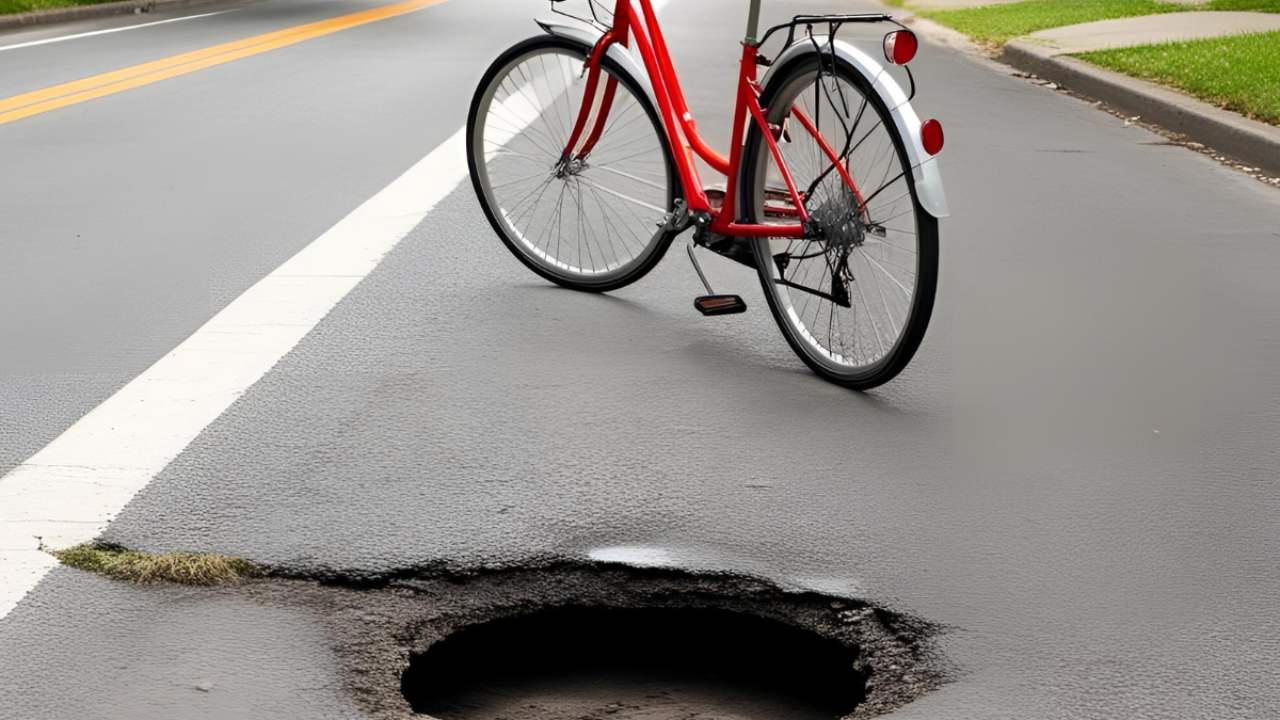The Power of Potholes: A Story on Moving Forward

Years ago, as a piano teacher, I often spoke about potholes. Now, as a leadership coach, I still do - but these aren’t the kind that rattle your tires. They’re the ones that shake your confidence.
My piano students froze in midair when they made a mistake, especially in performance. And then, they’d go back to that measure and try to fix it. It’s as if those wrong notes lingered in the air, an echo they could only erase if they went back and played that section correctly. But music - and life - doesn’t work that way. The mistake only became more obvious.
And so I told them a story about potholes:
Imagine you’re riding a bike, the wind whipping your hair as you race down the street. Suddenly, a pothole appears. It’s too late to swerve. The only thing you can do is hold on tight and go bumpety-bump over the hole. After you hit the pothole, you don’t stop. You don’t think I just hit a pothole, so I need to go back and ride that section again, promising yourself that this time I’ll go around that pothole. Of course not. We keep riding.
Professionals often get stuck when things don’t go as expected. Too often, we grip the handlebars tighter, replaying the stumble in our minds. We tell ourselves, ‘I should have seen it coming. I should have avoided it.’ But the road doesn’t go backward. It only moves forward.
We need to learn how to hit the potholes and keep moving forward. But there’s an important step in this process.
I used to use software in my piano studio that erased the music after each measure, forcing students to keep moving forward without going back. At first, my students panicked. They wanted to go back, to correct the note they had played just a second ago. But the measure had vanished. They had no choice but to press on. The software taught them something important—but it wasn’t quite right. While the intention was good—to encourage continuous progress—it turned out to be ineffective because it was missing something.
Musicians don’t go back and fix a mistake, but we do glance back at our music while we’re sight reading. We look back to find patterns and repeating elements. We look back to say, Yes, here was where I stumbled. It’s coming up again. Perhaps we’ll slow down just a bit or sharpen our focus, so we don’t make the same mistake again.
We need to look back so we can keep moving forward.
The same applies in business. Looking back at our missteps, mistakes, and challenges is important—but it’s all about perspective. The key is not to ruminate on what went wrong, but to reflect. Reflection is about distancing ourselves from the emotional charge of the mistake and focusing on the lessons it offers. It’s about asking: What can I learn from this experience to do better moving forward?
In both life and work, this shift from rumination to reflection can make all the difference. When we reflect, we gain the clarity we need to move forward with more focus and intention. This allows us to slow down, breathe, and think about the best next steps. Whether you're facing a leadership challenge, a difficult decision, or simply navigating day-to-day work, reflection can help you regain balance.
There will always be potholes—those moments of setback.
But they’re opportunities to slow down, reflect, and gather insights that can propel you forward. The key is to stop looking back in frustration and start looking back with curiosity.
Remember, the most important part is to keep moving forward, no matter what. So hit the pothole. Feel the bump. Learn from it. And most importantly—


